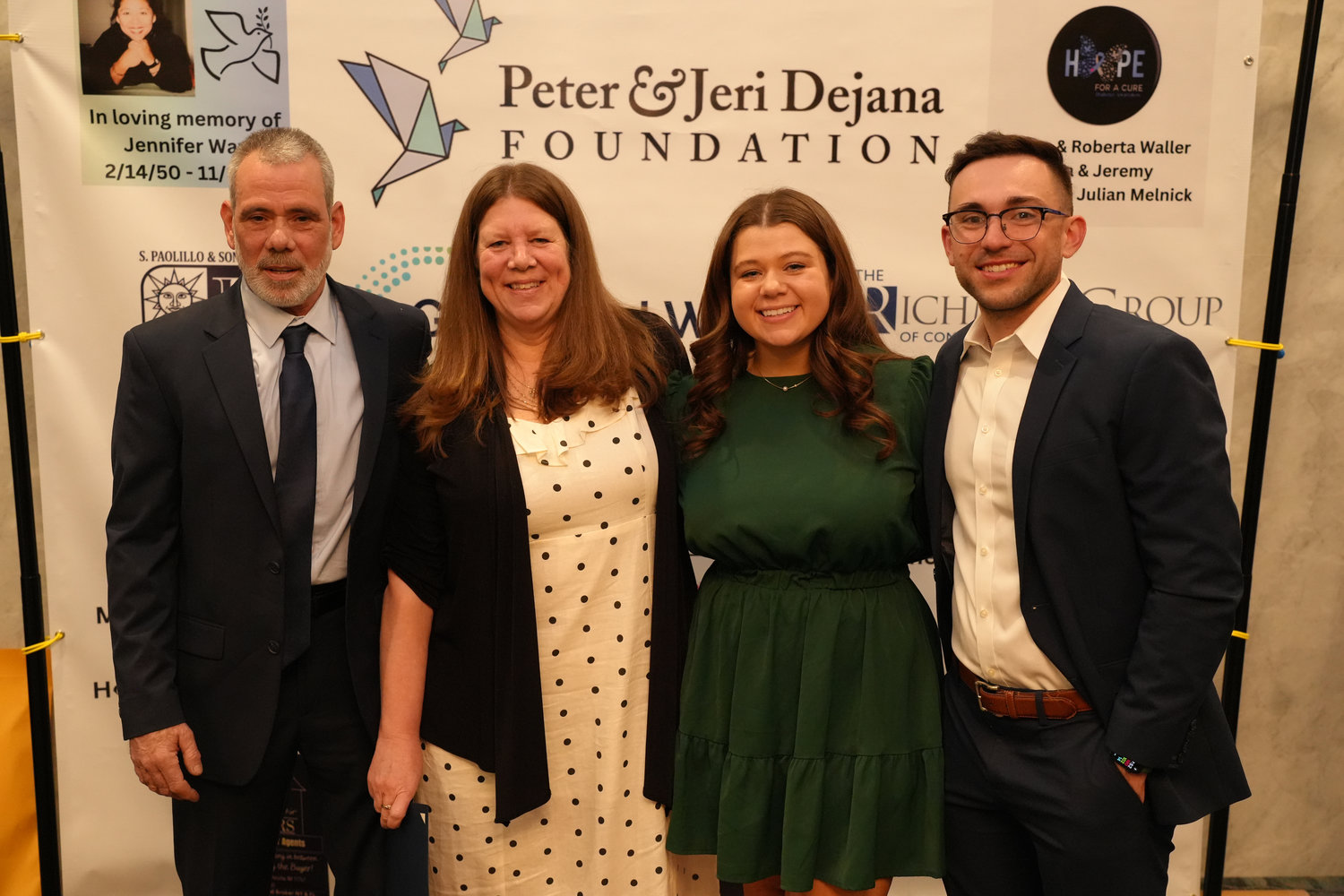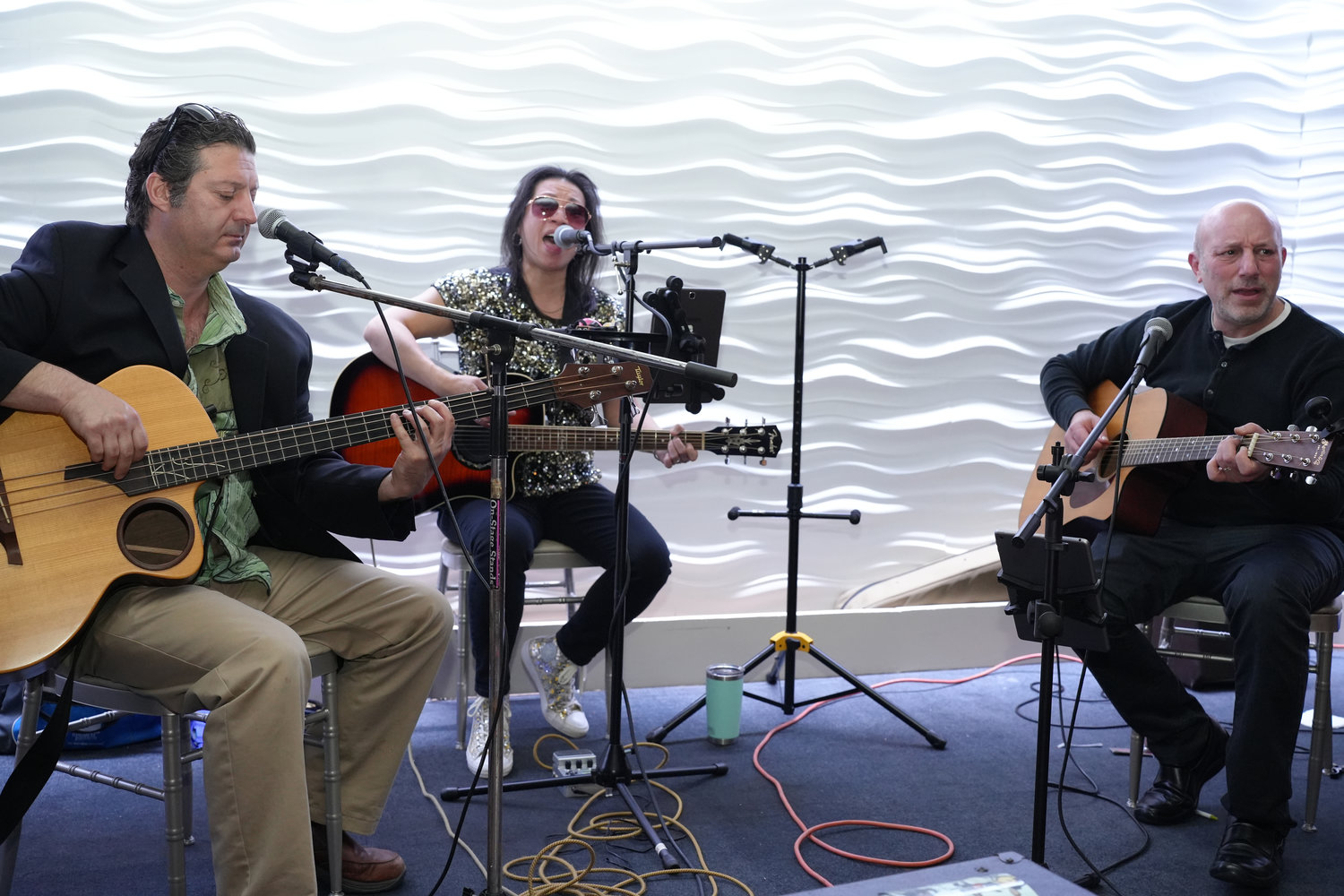‘Cooking for a Cure’ event raises $100,000
Supporters in the fight to end diabetes in America met for the annual Cooking for a Cure event at the Crescent Beach Club in Bayville on March 29, which raised $100,000.
The reception, held for the first time since 2019, featured dinner, drinks, music and raffle prizes, all with the backdrop of Bayville water views for an evening benefiting the Diabetes Research Institute Foundation.
The World Health Organization describes diabetes as a metabolic disease characterized by elevated levels of blood glucose, which leads to serious damage to the heart, blood vessels, eyes, kidneys and nerves.
The WHO estimates that more than 37 million people in the United States have diabetes, and one in five don’t know they have it. Diabetes is the seventh- leading cause of death in the U.S., and in the last 20 years, the number of adults diagnosed with it has more than doubled as the American population has aged and become more overweight or obese.
The life-changing disease affects people of all demographics. Dara Melnick, one of the event’s honorees, was diagnosed with Type 1 diabetes — formerly called juvenile diabetes — when she was 8 years old, in the early 1990s. Her symptoms started with weight gain, which led to a diabetic coma while visiting her grandparents in Florida. Melnick was hospitalized for a week.
Hearing her diagnosis, the first question she asked her parents was if she could still
eat Oreo cookies.
She was told she needed to change her lifestyle immediately, including her eating habits. She could no longer eat cupcakes with her fellow classmates, and instead, had to eat an apple. And Melnick was also prescribed five to eight insulin injections daily until a new treatment, an insulin pump, became available when she was in her mid 20s.
“You’re doing the work as a diabetic what your pancreas does for everybody else that works,” Melnick said. “You are becoming your organ.”
Medical costs associated with diabetes are twice as high than for people who don’t have the disease, leaving people like Katheryn Paolillo, who was diagnosed at 18, angry about the cost of the lifesaving medication.
When Paolillo turns 26 later this year, she will no longer be eligible to be covered under her mother’s health insurance, forcing her to pay more than the $80 for a three-month supply of insulin. Paolillo wears a glucose monitor, which sends updates to her phone every five minutes.
Soon after Paolillo was diagnosed with Type 1 diabetes, she and the rest of her family and friends became involved in multiple events to raise money for the DRI Foundation, a passion that continues to grow as the Paolillos devote more of their time and energy to raising money and awareness so that a cure can be found.
Diabetes can be mistaken for other conditions, which nearly cost 25-year-old Sea Cliff resident Alex Kennedy his life. In December 2022, Kennedy felt his heart racing and saw his doctor, who suspected his increased heart rate was the result of a defective asthma inhaler. Kennedy couldn’t walk upstairs in his apartment without feeling exhausted.
In February, Kennedy underwent blood tests, and was told by his doctor the following day go to the emergency room. He was experiencing diabetic ketoacidosis, a complication from Type 1 diabetes where his blood produced excessive acid. He was hospitalized for 55 hours.
When Kennedy first received the diagnosis, he felt devastated, but said the diagnosis was a catalyst for living a healthier life. Organizations like the Diabetes Research Institute bring him comfort, he said, since he can talk with other diabetics about their experiences.
“It’s really not the end of the world by any stretch of the imagination,” Kennedy said. “So long as you’re willing to make changes and recognize that it’s for the better. Even if you’re not a diabetic, a lot of the life changes that come with this lifestyle are beneficial.”
Nassau County Legislator Delia DeRiggi-Whitton, a DRI Foundation board member and event co-chair, has her own personal connection to the cause – her daughter Amanda was diagnosed with Type 1 diabetes when she was 3 years old. Since then, she been an outspoken advocate for diabetes awareness, treatment and research, and remains a prolific fundraiser who has helped to raise more than $1 million toward a cure.
“Like so many parents, when I first learned that my daughter had diabetes, I felt unsure where to turn or how to move forward but thanks to the amazing group of families at the Diabetes Research Institute Foundation, we received the resources and support that helped my daughter thrive,” DeRiggi-Whitton said.

 43.0°,
Partly Cloudy
43.0°,
Partly Cloudy 







